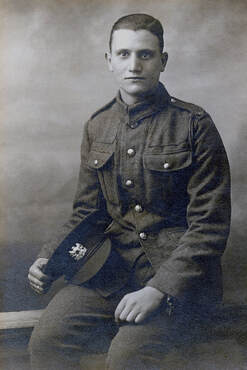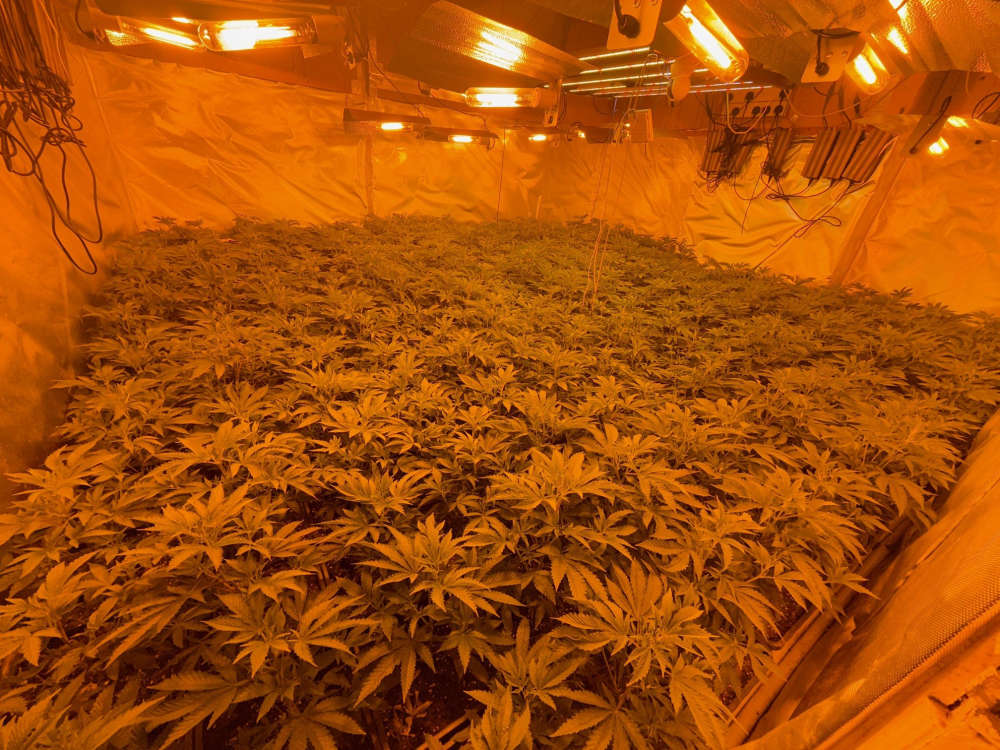
Exactly one hundred years ago, seventeen young men from Tameside were caught up in battle far away from home - it cost them their lives.
They were members of the 2nd Battalion of the Manchester Regiment and they were serving in what was then Mesopotamia - present day Iraq.
They had arrived at Basra in March 1920 after over a month at sea and sailed up the River Tigris in a steamer before arriving at Baghdad. From there they had taken a train north to Tekrit (the village which later became infamous as the home of Saddam Hussein) where they had spent their time in tough conditions protecting refugees, looking after the safety of 900 British women and children and guarding Turkish prisoners of war.
By July there were rumblings among the southern tribes and the Battalion was sent 150 miles south by train to the city of Hillah - the site of ancient Babylon. Here the officer in command at Hillah was persuaded to send out a small force to re-assure the friendly Arabs and to maintain order in the area. On July 23rd the Manchester column set out from Hillah.
The conditions were unbearable as they marched six miles south in heat that was said to be 108 degrees Fahrenheit in the shade! The men suffered greatly and the medical officer said they should rest up for a whole day. They camped in a place where there was only brackish water unfit for the men and their animals. The force was ordered to advance at dawn and, after 3 ½ hours to water the animals, left at 9am on July 24 to arrive at the Rustimiyah Canal at 12.45pm. All were affected by the great heat but the place was not too bad; there was water and in the afternoon lorries came from Hillah bringing rations, soda water and ice as the men dug a defensive trench.
At 6pm all seemed peaceful. But then news came of a well armed body of Arabs moving in on the camp. Thirty Arab flags were spotted indicating the presence of 2000 to 3000 men, some said 10000. Sniping at the camp began and some transport animals were hit. The Commanding Officer was persuaded to withdraw to Hillah which it was feared might be captured. The retreat began well at 8.40pm but they had gone only 500 yards when the Arabs opened fire.
One man particularly was to distinguish himself that night. He was Captain George Stuart Henderson VC who reorganised the men and led them to the attack three times. But tragically something had started a panic among the transport animals and there was chaos. The column was heavily attacked by fanatical tribesmen and suddenly they found themselves involved in hand to hand fighting; some lost their way in the dark on the overgrown track and small groups of men found themselves surrounded by big groups of Arabs armed with knives, intent on booty. Henderson was shot in the thigh; held up on the embankment by his men he called out, “I’m done now, don’t let them beat you!” Perhaps they were the last words those Tameside men heard before they were cut down. Henderson was posthumously awarded the Victoria Cross for his bravery.
That night, July 24th 1920, 178 men were left dead or missing, 150 were captured and 60 were wounded. Sixteen Tameside men were killed and their bodies never recovered. One further Tameside lad escaped but died of his privations later on that year. Their names are recorded on the Basrah War Memorial which sadly is impossible to visit these days. They are also remembered in the Regiment Chapel at Manchester Cathedral. These Tameside lads are not forgotten and are remembered today with pride:
ALBERT EDWARD AXON aged 18 of 26 Milton St, Denton. He was born in Denton in 1903 to Charles Peter and Martha Axon. He is commemorated on the Basra War Memorial.
SAMUEL BARDSLEY aged 23 of 16 Gerard St, Ashton. He was the son of William Henry Bardsley, 16 Gerard St, Ashton and husband of Mary Bardsley. He is commemorated on the Basra War Memorial.
THOMAS KELLY BURGESS aged 18 of Cedar Bank, Oldham Rd, Ashton. He was the son of Joseph and Annie M. Burgess. He is commemorated on the Basra War Memorial.
JOSEPH CARR aged 20 of 38 Haughton Rd, Audenshaw. He was a Corporal and the son of Mrs Harriett Carr. He is commemorated on the Basra War Memorial.
JOHN CONSTANTINE of 7 Oldham St, Droylsden. He is commemorated on the Basra War Memorial.
ROBERT HENRY COOKE of 46 East St, Guide Bridge. He is commemorated on the Basra War Memorial.
MAXWELL ROBERT CRAWFORD aged 20 of 6 Matley St, Hurst Brook. He was the son of Robert Maxwell and Annie Crawford. He is commemorated on the Basra War Memorial.
WILLIAM FIELDEN aged 19 of 5 Wigmore St, Ashton. He was the son of Mrs Jane Fielden. He is commemorated on the Basra War Memorial.
THOMAS GALLERY aged 22 of 7 Hurst St, Dukinfield. He was the son of William and Mrs E Gallery. He is commemorated on the Basra War Memorial.
NORMAN HADFIELD aged 20 of 35 Queen St, Dukinfield. He was the son of Albert Hadfield and Bertha Hadfield. He is commemorated on the Basra War Memorial.
HERBERT HALLWORTH of 20 Hill St, Dukinfield. He was the son of Isaac Hallworth. He is commemorated on the Basra War Memorial.
JOHN HENRY (JACK) HEATHCOTE aged 18 of 32 Hanover St South, Audenshaw. He was born in Castleton, Derbyshire, in 1902 to Francis and Elizabeth Heathcote. He is commemorated on the Basra War Memorial and St Stephen's Church lych gate
FRANK HIGGINBOTTOM of 11 Audenshaw Rd, Guide Bridge. He was the son of Mrs J. Dimmock. He is commemorated on the Basra War Memorial and on St Stephen's Church lych gate.
EDWIN JOSEPH KELLY of 25 Back New St, Droylsden. He is commemorated on the Basra War Memorial.
THOMAS McDONALD DCM MM aged 35 of 4 Kenyon St, Hurst Brook. He was a Company Serjeant Major and the husband of Margaret McDonald. He is commemorated on the Basra War Memorial.
LOT (LUKE) TETLOW of 15 Back Portland St, Ashton. He was the son of Lot Tetlow and Sarah Jane Greenwood. He is commemorated on the Basra War Memorial.
Also LESLIE RONALD CUMMINGS aged 20 of Hurst Vicarage. A former pupil of Manchester Grammar School, he was the son of the Revd R. W. and Florence Ellen Cummings. He died of diphtheria on December 2nd 1920 after escaping the slaughter of July 24th. He was buried at Baghdad (North Gate) War Cemetery.
Main image:
John Henry (Jack) Heathcote was one of over 135 soldiers of the 2nd Battalion of The Manchester Regiment killed in action at Hillah in Mesopotamia (Iraq) on the evening of Saturday July 24th 1920. He came from Audenshaw and was 18 years old.


 TransPennine Express steps in to keep passengers moving this Easter weekend
TransPennine Express steps in to keep passengers moving this Easter weekend
 New Timetables For Trains Across The North In May
New Timetables For Trains Across The North In May
 800 cannabis plants seized in Mossley
800 cannabis plants seized in Mossley
 StalyFest takes over Bower Fold
StalyFest takes over Bower Fold



